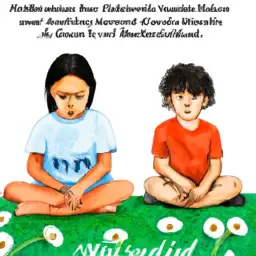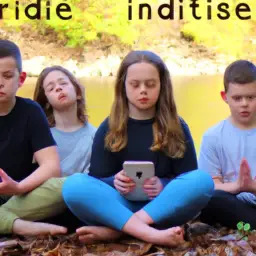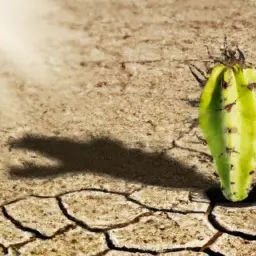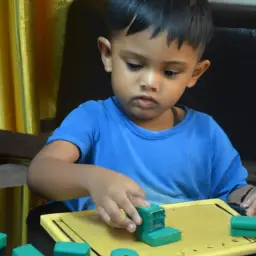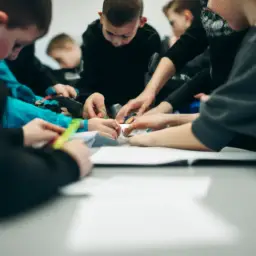If you’re a parent, you know that raising a child can be challenging. As your child grows and develops, you want to give them the tools to succeed in life. One way to do this is by incorporating mindfulness practices into your parenting.
Mindfulness can help your child develop grit, emotional regulation, and positive psychology. Luckily, there are many online courses available to help you learn how to incorporate mindfulness into your parenting.
In this article, we’ll introduce you to 10 online courses that can help you develop your child’s grit through mindfulness practices. We’ll cover the importance of mindfulness in parenting, emotional regulation, teaching mindfulness to children, and mindfulness-based stress reduction.
By the end of this article, you’ll have a solid understanding of how to incorporate mindfulness into your parenting and be ready to enroll in a course that suits your needs.
Key Takeaways
- Mindfulness practices can help children develop grit by improving emotional regulation, reducing stress and anxiety, and enhancing cognitive abilities.
- Mindful parenting techniques, such as clear communication and understanding a child’s needs and emotions, can cultivate a strong relationship between parent and child.
- Self-care strategies, including physical activity, mindfulness techniques, positive self-talk, and social connections, can promote emotional well-being and build resilience in children.
- Teaching mindfulness to children through fun and engaging activities, such as coloring, breathing exercises, and guided imagery, can help them handle difficult emotions and situations, develop resilience, and persevere.
The Importance of Mindfulness in Parenting
Mindfulness is crucial in parenting if you want to develop your child’s grit.
Mindful parenting techniques can help you cultivate a strong relationship with your child, establish clear communication, and develop a deeper understanding of your child’s needs and emotions.
When you practice mindfulness, you become more present and attentive to your child’s experiences, which can help you respond to their needs in a more effective and empathetic way.
In addition to strengthening your relationship with your child, there are many benefits of mindfulness for children. Research shows that mindfulness can help children develop emotional regulation skills, reduce stress and anxiety, and improve their cognitive abilities.
When children learn to be more mindful, they are better equipped to handle difficult emotions and situations, which can help them develop resilience and perseverance – essential qualities for building grit.
By incorporating mindfulness practices into your parenting, you can help your child develop the skills they need to thrive in today’s challenging world.
Emotional Regulation and Positive Psychology
By learning to regulate emotions and focus on the positive, kids can develop the resilience they need to overcome challenges. As a parent, you play a critical role in helping your child build emotional regulation skills and a positive mindset.
Here are some self-care strategies you can incorporate into your family’s routine to promote emotional well-being and build resilience:
-
Encourage physical activity: Regular exercise helps release endorphins, the body’s natural mood boosters, and reduces stress levels.
-
Teach mindfulness techniques: Mindfulness practices, such as deep breathing and meditation, can help your child learn to regulate their emotions and reduce anxiety.
-
Promote positive self-talk: Encourage your child to develop a positive inner voice by praising their efforts and focusing on their strengths.
-
Foster social connections: Strong social connections can provide support and a sense of belonging, which can help your child build resilience.
-
Model self-care: Show your child the importance of taking care of themselves by practicing self-care activities, such as getting enough rest, eating nutritious foods, and taking breaks when needed.
By incorporating these self-care strategies into your family’s routine, you can help your child develop the emotional regulation and positive mindset they need to overcome challenges and build resilience.
Remember, building resilience is a process, and it takes time and effort. But with your support and guidance, your child can learn to navigate life’s ups and downs with confidence and strength.
Teaching Mindfulness to Children
Teaching children how to be present and aware of their surroundings can help them cope with stress and improve their overall well-being. Mindfulness is a practice that can be incorporated into a child’s daily routine to help them develop these skills.
There are many fun mindfulness activities that can be done with children of all ages. For younger children, age-appropriate techniques such as coloring, breathing exercises, and guided imagery can be used to introduce them to mindfulness. For older children, techniques such as body scans, mindful walking, and mindful eating can be introduced.
It’s important to make mindfulness a fun and engaging experience for children so that they are more likely to continue practicing it. Mindfulness can be incorporated into daily activities such as mealtime, homework, and bedtime routines.
By teaching children how to be mindful, we are helping them develop resilience and grit, which are essential skills for success in life.
Mindfulness-Based Stress Reduction
Improve your ability to manage stress with the help of Mindfulness-Based Stress Reduction techniques. MBSR is a program that was developed by Dr. Jon Kabat-Zinn at the University of Massachusetts Medical School. The program focuses on teaching mindfulness techniques to individuals who are experiencing high levels of stress, anxiety, and chronic pain. MBSR is an evidence-based program that has been shown to have numerous benefits for its participants.
One of the primary benefits of MBSR is stress reduction. The program teaches individuals how to recognize the signs of stress in their bodies and how to respond in a way that promotes relaxation and calmness. By using mindfulness techniques, individuals are able to reduce their stress levels and improve their overall sense of well-being. Additionally, MBSR has been shown to have positive effects on mental health, including reducing symptoms of depression and anxiety. By incorporating MBSR techniques into your daily routine, you can improve your ability to manage stress and promote mental and emotional well-being.
| MBSR Benefits | ||
|---|---|---|
| Stress Reduction | Improved Mental Health | Increased Self-Awareness |
By utilizing MBSR techniques, you can experience the numerous benefits of the program. These benefits include stress reduction, improved mental health, and increased self-awareness. By incorporating mindfulness practices into your daily routine, you can improve your ability to manage stress and promote overall well-being. So, if you are looking for ways to manage stress and improve your mental health, consider incorporating MBSR techniques into your daily routine.
Resources for Continuing Your Mindfulness Practice
Ready to deepen your mindfulness practice? Check out these great resources to keep your practice going!
One way to continue practicing mindfulness is through mindful breathing exercises. Focusing on your breath can help you stay present in the moment and calm your mind. You can find guided breathing exercises online or in mindfulness apps, which can be a helpful tool to incorporate into your daily routine.
Speaking of mindfulness apps, there are many options available to help you continue your practice. Some popular apps include Headspace, Calm, and Insight Timer. These apps offer guided meditations, breathing exercises, and other mindfulness practices to help you develop your skills. Whether you have a few minutes or an hour to spare, there are options available to fit your schedule.
So, why not give it a try and see how incorporating mindfulness practices can benefit you and your child’s development of grit?
Frequently Asked Questions
How can mindfulness practices help in developing a child’s social skills?
Mindfulness practices can greatly benefit a child’s social skills by promoting self-awareness, empathy, and emotional regulation.
Mindfulness activities such as deep breathing, body scans, and mindful listening can help children become more attuned to their own emotions and those of others, leading to better communication and conflict resolution skills.
Additionally, practicing mindfulness can help children regulate their emotions, preventing impulsive reactions and fostering a more thoughtful, measured approach to social situations.
Overall, incorporating mindfulness into a child’s routine can have a positive impact on their social development and emotional well-being.
What are some effective ways to introduce mindfulness to a child who is resistant to it?
If your child is showing mindfulness resistance, overcoming this resistance may take some patience and creativity. One effective way to introduce mindfulness is to start small, perhaps with a simple breathing exercise or a short guided meditation.
It may also be helpful to make mindfulness activities fun and engaging, such as playing a mindfulness game or doing a mindful craft project together. It’s important to remember that mindfulness is a practice, and it may take time for your child to fully embrace it.
Encourage them to keep trying and to approach the practice with an open mind. With consistent effort and positive reinforcement, even the most resistant child can begin to experience the benefits of mindfulness.
Can mindfulness practices be useful in dealing with specific behavioral issues in children, such as tantrums or hyperactivity?
Mindfulness benefits children in many ways, including helping them deal with specific behavioral issues like tantrums or hyperactivity. By practicing mindful parenting techniques, you can teach your child to focus their attention and calm their emotions, providing them with tools to manage their behavior.
Mindfulness can also help children develop empathy and emotional intelligence, which can lead to more positive relationships with others. So, whether it’s dealing with challenging behaviors at home or helping your child thrive in social situations, incorporating mindfulness practices into your parenting can have a positive impact on your child’s overall well-being.
How can parents integrate mindfulness practices into their daily routines, especially when they have busy schedules?
You may find it challenging to integrate mindfulness practices into your daily routine, especially if you have a busy schedule. However, it’s essential to remember that mindfulness benefits both you and your child.
To incorporate mindfulness into your daily routine, start by setting aside a few minutes each day to practice mindfulness. You can do this by taking deep breaths, focusing on the present moment, and paying attention to your thoughts and feelings.
Time management tips can also help you make time for mindfulness. Consider waking up a few minutes earlier, taking breaks during the day, or incorporating mindfulness practices into your daily activities, such as while cooking or doing household chores.
Remember that practicing mindfulness regularly can help you and your child develop grit and resilience.
Are there any potential risks or negative effects associated with practicing mindfulness with children?
When considering practicing mindfulness with children, it’s important to be aware of potential risks and age appropriateness. While mindfulness practices can have many positive effects for children, such as increased focus and emotional regulation, it’s important to approach it with caution.
Younger children may not have the ability to fully understand the concepts of mindfulness and may not benefit from it in the same way as older children. Additionally, there is a risk of overemphasizing internal focus and neglecting external factors that are important for child development, such as social interactions and physical activity.
As with any new practice, it’s important to do your research and consult with professionals to ensure that mindfulness is being practiced in a safe and appropriate manner.
Conclusion
Congratulations on taking the first step towards incorporating mindfulness practices into your parenting! By developing your own mindfulness practice, you’re setting a positive example for your child and helping them develop important skills like emotional regulation and grit.
Remember, it’s never too late to start and every small step counts. If you’re looking for resources to continue your mindfulness journey, consider taking one of the online courses mentioned in this article.
From Mindful Parenting to Mindfulness-Based Stress Reduction, there are a variety of options to fit your needs and schedule. Keep practicing, stay patient, and enjoy the benefits of a more mindful family life.










